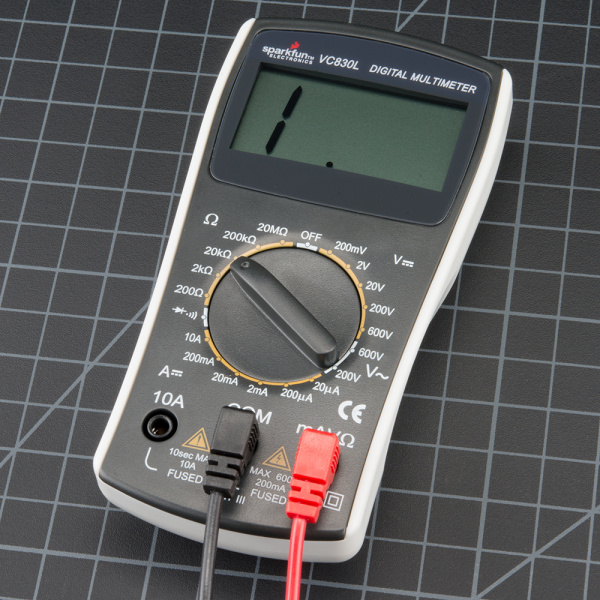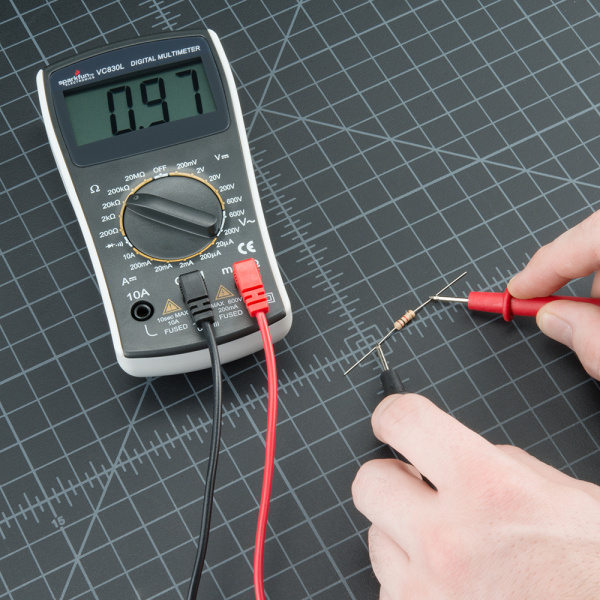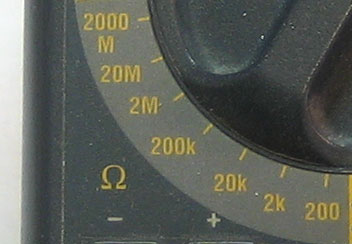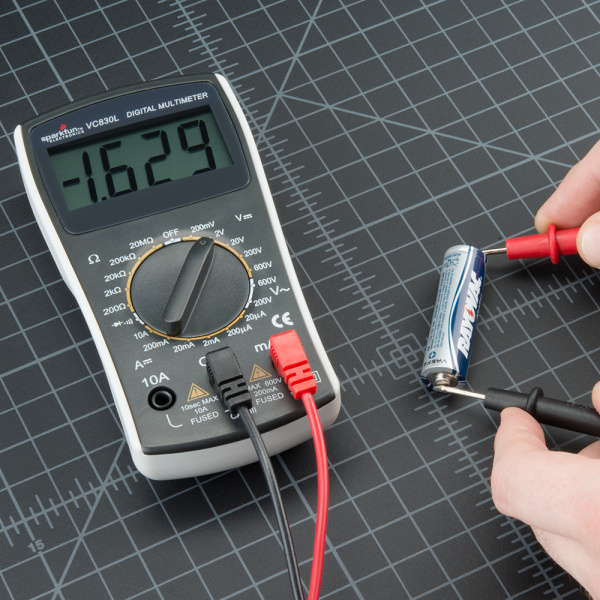More About Resistors
The Principal job of a Resistor within a electrical or Electronic circuit is to "Resist", regulate or to set the flow of electrons (Current) through them.
Typical Resistor
Standard Resistor symbol
Calculating the Resistance Value using Graphical Representation
like
B-B-R-O-Y-Great-Britain-Very-Good-Worker
We take Consideration from Narrowed Space End
if we have Resistor with Following colors - (Blue Black Brown and Gold)
Then the value of Resistor Would be -
Blue - 6 - First Digit
Black - 0 - Second Digit which makes Value = 60
Brown - 1 - Multiplier value Which makes --> 60 * 10 = 600 Ohms
How To check Resistance
Finding the value of Resistor using Color Code is easy... But It is A cumbersome if we have many Resistors With Different values and Going through entire Calculation Every time we need a Value.
So A device Called MULTIMETER is Useful for this purpose.
we can use it To Measure Voltage, Current, And Resistance.
A Multimeter has three Parts
1.Display
2.Selection Knob
3.Ports
Section Knob is used to Select the Parameter which user wanted to measure
Measuring Resistance:
Points To Note :
Resistance is non-directional
You can only test resistance when the device you're testing is not powered
You can only test a resistor before it has been soldered/inserted into a circuit
If you have a ranging meter you'll need to keep track of what range you are in. Otherwise, you will get strange readings, like OL or similar, or you may think you're in KΩ when really you're in MΩ.
Selecting the Range.
Please Note the Ohm symbol
Resistance In Series and Parallel
Resistance In Series and Parallel
we can Calculate the Resistance of particular material Using formula
R = rho * l /A
where rho --> the resistivity of the Material
l --> length of Material
A --> Cross Sectional Area
If we Connect Two Resistors in Series (End to End) the Overall resistance is Increased
If we Connect Two Resistors in Parallel (Side by Side) then the Overall Resistance is Decreased
Resistors in series add together as R1 + R2 + R3 + .....
While resistors in parallel reduce by 1 / (1 / R1 + 1 / R2 + 1 / R3 + .....)
Measuring the Voltage
We need to Connect the Positive terminal of Battery to the Red wire and Negative terminal to The Black wire.. If we reverse the Polarity we are Gonna Have Negative Voltage.







No comments:
Post a Comment